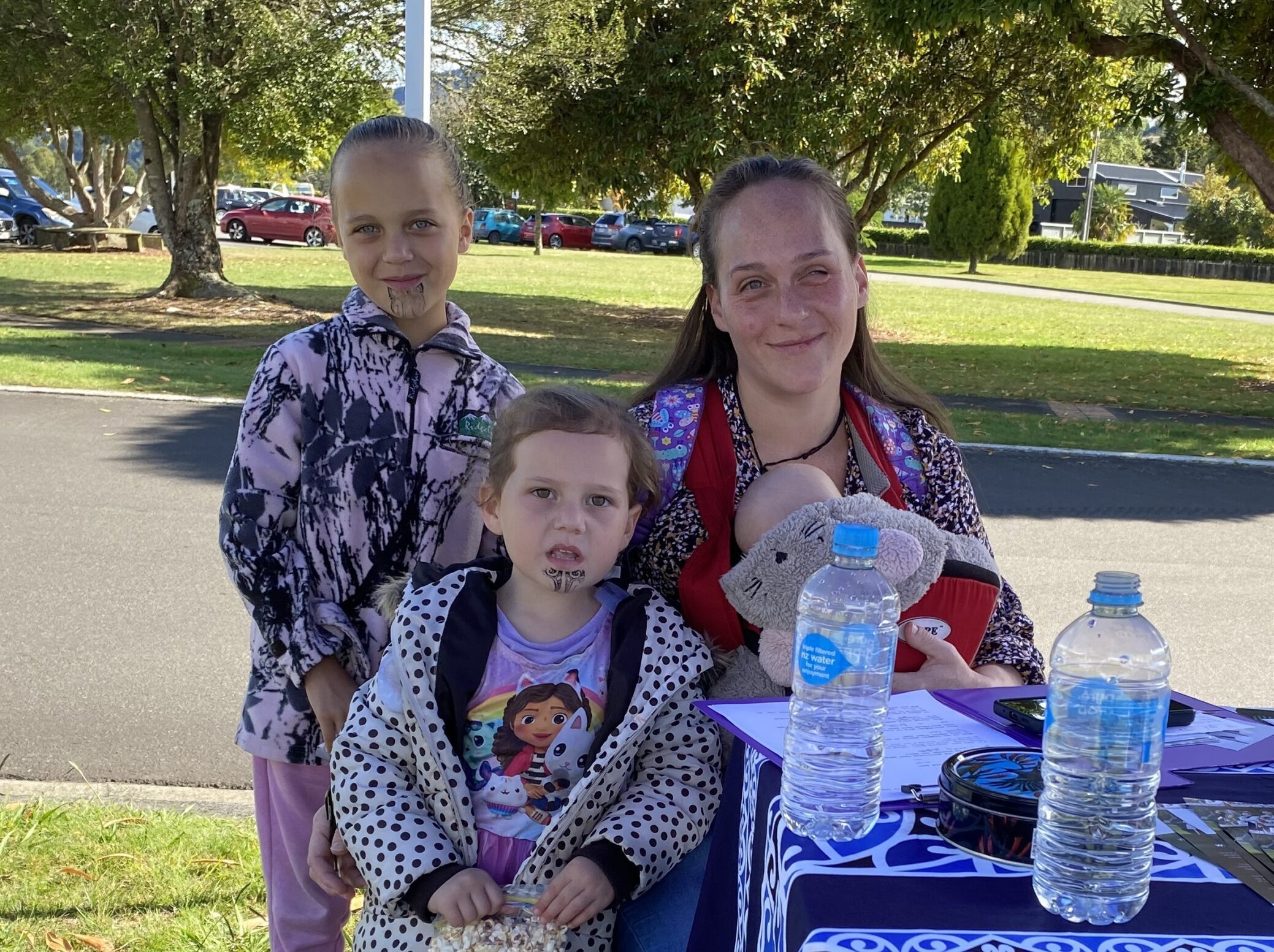Crowds of whānau gathered today in Taumaranui at the Hapori Hauora Day, a health and wellbeing event designed to connect them with much-needed services—especially those that have been out of reach for too long, including oral health care.
Hosted at Taumarunui Hospital, the event organised by local and Te Whatu Ora services was supported by Te Tiratū Iwi Māori Partnership Board (IMPB) with its dedicated Whānau Voice kaimahi, and it drew attention to the stark gaps in health access across the region—particularly in the areas of dental, eye and ear care.
The Hauora Day provided on-the-spot services that included cardiac/diabetes/cancer screening, an eye clinic, immunisations, gall bladder/hernia/haemorrhoid banding specialists, to skin lesion clinics, but judging by the queues it was oral health and access to dental care that emerged as a top priority for many whānau attending.
“Parents expressed deep concern to get their tamariki seen—lining up in long queues to get access to the visiting dental teams. Yet the cost of treating their own dental issues remains out of reach. Many whānau do the best they can, using services when they’re available—but essential health care shouldn’t come down to waiting in line on a hauora day. That’s not equity—that’s survival,” said Brandi Hudson, Te Tumu Whakarae of Te Tiratū Iwi Māori Partnership Board.

A Call for Regular, Mobile Dental Services
Te Tiratū is advocating strongly for regular mobile dental services to visit remote and rural communities in South Waikato, where many whānau face significant barriers just getting to appointments—if they can find one. With few local dentists, high costs, and long travel times to urban centres, oral health has become a silent crisis.
Why Dental Matters
Oral health doesn’t exist in isolation. Poor dental care can lead to chronic infections, impact nutrition, self-confidence, and is closely linked to other health conditions like diabetes and heart disease. The Hapori Hauora Day included oral health education sessions, helping whānau understand these links and encouraging prevention. But education alone isn’t enough.
Pregnancy also increases the risk of dental issues, and with a high number of young Māori mothers and half the population under 25, the need for regular, accessible dental services is urgent and growing.
Looking Ahead: Growing a Māori Dental Workforce
The solution lies not just in service delivery—but in workforce development. Māori dental hygienists, therapists, and dentists are among the fastest-growing sectors in the health workforce, and the Te Tiratu wants to see that reflected in local service planning.
“Investing in our own people to deliver culturally grounded, community-based care is essential,” said Brandi Hudson. “And that starts with visibility. When our tamariki see Māori dentists in our communities, they start believing it’s a pathway for them too.”